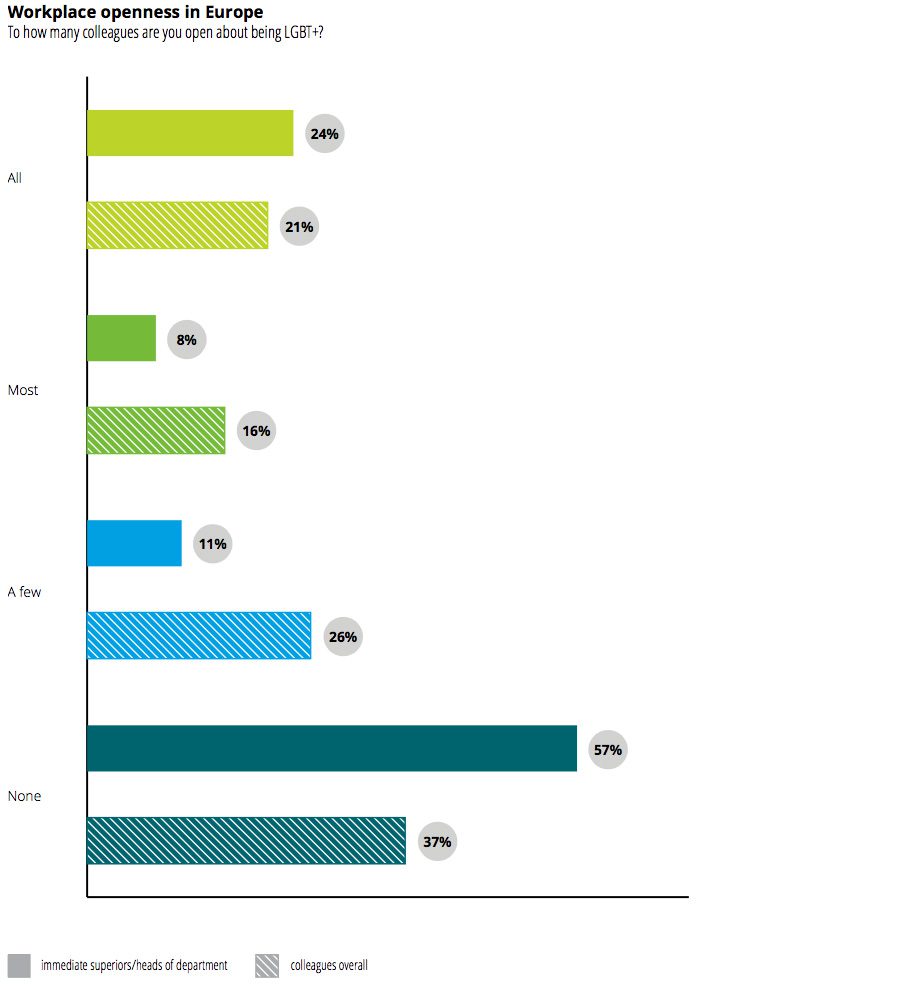The majority of employees in European companies do not feel comfortable disclosing their sexuality or gender identity to any member of management, according to a new study. In contrast, more individuals felts able to discuss the topic with their fellow workers.
With transparency regarding gender and ethnicity pay gaps currently a major watchword for modern businesses, many firms state they are striving for parity. Previous studies have found that LGBT+ workers receive an average annual salary of nearly £7,000 less than their ‘straight’ counterparts in the UK.
This is something which becomes increasingly difficult to address if employees feel uncomfortable, being ‘visible’ as members of the LGBT+ community. A new study from Deloitte and LGBT+ advocacy group Workplace Pride has found that workers across more than 30 countries in Europe may struggle with that precise issue, though.

The poll of workers found that four-in-ten LGBT+ workers are not open with any colleagues or managers at all. In some cases, this rose to 90% of people, who were ‘in the closet’ at work.
That only tells half the story, though. Of the people respondents were comfortable disclosing their sexuality or gender identity to members of the workplace hierarchy above them. While 37% of workers said they did not disclose their sexuality or gender identity to any colleagues, 57% said they would not do so with any immediate superior, or heads of department.
This potentially creates a feedback loop, wherein staff feel unsupported by their bosses – and therefore feel less likely to open up to them. As it is, only 35% of LGBT+ employees surveyed said they truly felt supported at work – indicating that they often or always feel supported.

Strangely, however, the report also seems to downplay this in terms of the impact it has on LGBT+ workers. The researchers decided to poll respondents on how they thought hiding their sexual orientation impacted their performance. The majority suggested that it did not make them less productive. In the UK, this saw 88% say they felt no impact on their productivity.
But why exactly the researchers thought this was a reasonable way to frame the debate is unclear. Reducing the matter to economic terms in such a manner seems to show there is little incentive for businesses to reach out to employees – after all, even though they broadly feel unsupported, to the extent they conceal their identities in ways that may well have psychological impacts beyond work; they are still productive between the hours of 9am and 5pm.
While 61% of the UK’s workforce suffers some form of mental health ailment, the situation is even worse for LGBT+ employees. More than eight-in-ten LGBT+ workers have experienced mental health conditions. With the number of workers concealing their sexuality or gender identity from bosses in the majority too, there is likely to be at least some cross-over, and arguably correlation, between these two stats.




